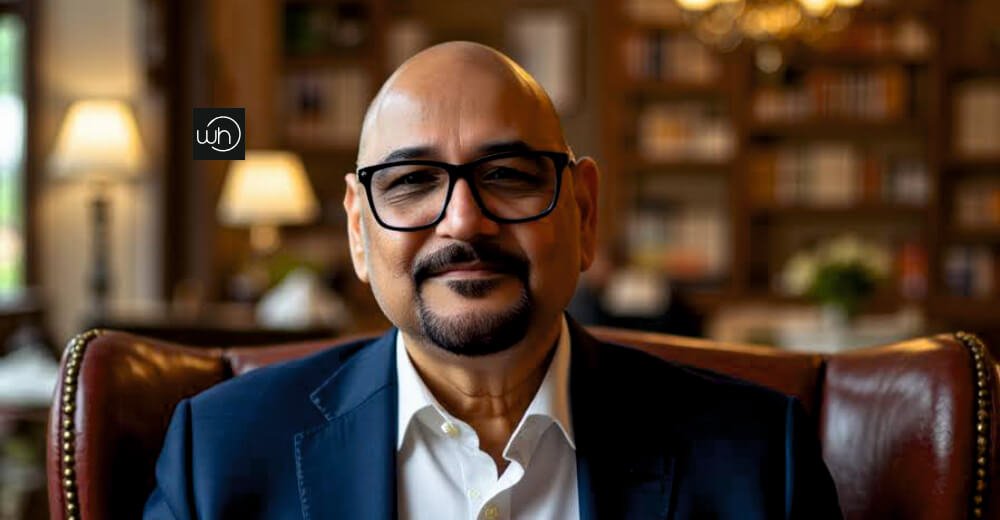Healthcare, one of the most crucial sectors for any society, is rapidly evolving thanks to the integration of new technologies that are improving patient outcomes and operational efficiencies. Central to this transformation at Reid Health is Muhammad Siddiqui, the hospital’s Chief Information Officer (CIO). He plays a critical role in leading the hospital’s technological direction by implementing advanced systems that directly improve operational effectiveness and enhance patient care delivery.
Siddiqui’s dual expertise in healthcare combined with technological knowledge enables him to connect the dots between healthcare and IT industries. Over ten years of healthcare IT experience across the USA and Middle Eastern regions has given him a deep understanding, which he now applies at Reid Health. His expertise in healthcare operational systems coupled with his technology know-how helps him execute solutions that combine innovative practices with patient-focused treatment while strengthening overall healthcare service quality.
As leader of Reid Health, Siddiqui led the organization to serve as an innovative light by implementing technologies including Artificial Intelligence (AI) and data analytics joined with automation to advance operational efficiency as well as healthcare delivery quality for patients. Under his leadership, the hospital embarked on digital transformation because he dedicated himself to implementing technology solutions that improve medical services and decrease expenses, among other priorities.
Let’s learn how Siddiqui is transforming healthcare with innovative solutions and visionary leadership!
Redefining The Role of the CIO in Healthcare
Traditionally, the role of a CIO in healthcare was largely focused on managing the hospital’s IT infrastructure—making sure servers, networks, and data systems were functioning smoothly and securely. However, with the growing reliance on technology in healthcare today, the role has evolved significantly. A modern CIO is not only responsible for managing technical systems but also plays a strategic role in guiding the organization’s overall goals, especially when it comes to incorporating technology into patient care and operational efficiency.
At Reid Health, Siddiqui has redefined the role of the CIO. Rather than simply overseeing IT systems, he has positioned himself as an integral part of the hospital’s decision-making process, collaborating with physicians, nurses, administrators, and other healthcare professionals to ensure that technology aligns with the hospital’s mission. “Technology is not just about making our operations more efficient; it’s about improving patient care,” he says. His role goes beyond tech support—he’s a driver of innovation that impacts how patients interact with healthcare services.
Siddiqui’s vision for technology is a patient-centered approach. He is deeply committed to ensuring that every technological tool and system implemented at Reid Health helps achieve two things: improving the quality of patient care and making the hospital’s operations more efficient. “For me, the ultimate goal of technology is to serve the patient,” he adds. This means that all digital transformations at Reid Health, from improving data management to streamlining appointment scheduling, are aimed at making healthcare more accessible, efficient, and transparent for patients.
Moreover, data management is another crucial part of the CIO’s role. The healthcare sector generates vast amounts of data every day, from patient records and test results to treatment histories and medical imaging. Siddiqui recognizes the importance of using this data not just for administrative tasks but also for enhancing clinical decision-making. “We collect an enormous amount of data, but the key is not just having it—it’s about using it to make better decisions that ultimately help the patient,” he explains.
Driving Digital Transformation Through AI and Automation
Artificial Intelligence (AI) and automation are two of the most exciting technological advances that are transforming healthcare. At Reid Health, he has been a driving force in introducing AI and automation into the hospital’s daily operations, improving everything from scheduling and staffing to clinical decision-making. By leveraging AI, Siddiqui and his team have been able to build systems that predict patient needs, optimize workflow, and reduce errors in clinical decisions.
One of the key areas where AI has made a significant impact at Reid Health is in predicting patient volumes. By analyzing historical patient data, AI models can forecast when patient visits will peak, such as during flu season or other seasonal surges. This predictive capability allows the hospital to proactively allocate resources, ensuring that enough staff members and medical supplies are available to handle the increase in patient numbers. “AI helps us plan ahead. We can predict when we’ll see more patients, which allows us to be better prepared,” he explains. These predictions enable Reid Health to manage resources more effectively and reduce wait times, improving the patient experience.
AI’s influence also extends to automating administrative tasks, which often consume a significant portion of healthcare staff’s time. Routine functions such as scheduling appointments, processing insurance claims, and billing are time-consuming and can lead to human errors. Automation has helped streamline these tasks, reducing manual labor and improving accuracy. “By automating these routine tasks, we free up staff time to focus on more meaningful interactions with patients,” he notes. This not only boosts efficiency but also contributes to a more pleasant experience for both patients and staff.
AI also plays a role in clinical decision-making. By analyzing patient data, including medical histories and test results, AI algorithms can suggest potential diagnoses or treatment plans. This is particularly useful in complex cases where a doctor may need support in making the right decision. AI serves as an aid to clinicians, helping them provide more accurate and personalized care for their patients. “AI doesn’t replace doctors—it supports them by giving them additional insights to make better decisions,” he states.
A Holistic Approach to Technology Integration
One of Siddiqui’s key strategies at Reid Health is ensuring that technology is integrated across all departments and operations in a seamless, holistic manner. Rather than using technology as a series of disjointed systems, he ensures that every new tool or platform is carefully chosen to work in harmony with others, fostering an interconnected, efficient, and collaborative environment. “It’s about making sure that every technology we adopt works together as part of a larger system,” he says.
This approach is crucial because it ensures that all parts of the hospital, from patient check-ins to clinical decision-making, operate smoothly without hiccups. For example, Reid Health uses AI tools to predict when more staff will be needed in specific areas of the hospital. By integrating this system with the hospital’s staffing software, managers can ensure they have enough staff on hand at the right times. “The goal is to have all systems talk to each other, creating a seamless workflow from start to finish,” he explains.
Additionally, patient data security remains a top priority in Reid Health’s approach to technology. With the increasing amount of sensitive health information being stored and transmitted digitally, ensuring that this data is protected from cyber threats is crucial. Siddiqui and his team have implemented stringent cybersecurity measures to safeguard patient data, ensuring compliance with HIPAA (Health Insurance Portability and Accountability Act) regulations and protecting patient privacy. “We understand the importance of data security, and we take every step necessary to protect our patients’ information,” he says.
Enhancing the Patient Experience Through Digital Front-Door Solutions
As healthcare continues to evolve, patient expectations are changing. Patients are increasingly demanding more convenient, accessible, and user-friendly ways to interact with healthcare providers. To meet these expectations, Siddiqui has spearheaded the development of a “digital front door” at Reid Health. This initiative is designed to make healthcare more accessible by offering patients digital tools that streamline their interactions with the hospital.
The digital front door includes a range of technologies aimed at improving the patient experience. Online appointment scheduling, virtual check-ins, and digital forms are just a few of the features available to patients. “We want to make it as easy as possible for our patients to access care,” he says. Patients can schedule appointments, fill out forms, and check in for visits without having to wait on the phone or in the waiting room. These tools not only save patients time but also reduce the workload on hospital staff, allowing them to focus more on patient care.
Telemedicine is another area where Siddiqui sees huge potential. The rise of virtual care, particularly since the COVID-19 pandemic, has transformed how patients interact with healthcare providers. Through telemedicine, patients can consult with doctors, receive medical advice, and even follow up on treatments without needing to visit the hospital in person. “Telemedicine has opened up new ways to reach patients who might have difficulty coming to the hospital,” he says. Virtual visits allow patients in remote areas or those with mobility issues to access healthcare quickly and efficiently.
Overcoming Challenges in Healthcare IT
While technology holds enormous promise for improving healthcare, its implementation often comes with significant challenges. One of the biggest hurdles Siddiqui faces is overcoming resistance to change. Many healthcare professionals are accustomed to traditional methods of doing things, and adopting new technologies can be a daunting task. To overcome this, he emphasizes the importance of training, support, and clear communication.
“We understand that change can be difficult. That’s why we prioritize training for our staff and ensure they have the support they need to adapt,” he explains. Reid Health offers regular training programs and workshops to help staff learn how to use new systems effectively. Additionally, his team provides ongoing support to answer questions and troubleshoot any issues that arise. This helps staff feel more confident in using the new technologies and see the value they bring to their daily work.
Another challenge Siddiqui faces is ensuring that new technologies are compatible with existing systems. Hospitals often use a mix of legacy systems and newer technologies, and integrating these systems can be a complex task. His team works closely with other departments to ensure that new systems work seamlessly with old ones. “The goal is to have everything work together smoothly, without disruption,” he states.
The Future of Healthcare Technology
Looking ahead, Siddiqui is excited about the potential for even more innovation in healthcare. One area he’s particularly enthusiastic about is predictive analytics, which uses AI to analyze large amounts of data to forecast patient outcomes, predict disease trends, and identify potential health issues before they become serious. This technology will allow healthcare providers to intervene earlier, improving patient outcomes and reducing costs.
“Predictive analytics will be a game-changer for healthcare. By understanding trends and patterns in patient data, we can provide better care and catch issues before they become critical,” he says. This proactive approach could drastically reduce hospital readmissions, streamline treatment plans, and ultimately save lives.
Interoperability, or the ability for different healthcare systems to communicate with one another, is another area that Siddiqui sees as critical to the future of healthcare. “In the future, healthcare systems will need to be able to communicate seamlessly with one another. This will make it easier for patients to move between healthcare providers and ensure continuity of care,” he explains. Interoperability will help eliminate data silos, allowing doctors and hospitals to share patient information in real-time, improving decision-making and reducing errors.
Technology as a Driver for Positive Change
Siddiqui’s leadership is driving a digital transformation at Reid Health that is reshaping the future of healthcare. His innovative approach to integrating AI, automation, and data analytics has improved patient care, streamlined operations, and reduced costs. As healthcare continues to evolve, his vision for the future of technology in healthcare will continue to guide Reid Health toward a more patient-centered and efficient future.
Through his efforts, Siddiqui is proving that technology, when implemented strategically, can be a powerful tool for improving the quality of care, enhancing patient experiences, and making healthcare more efficient for everyone involved.




